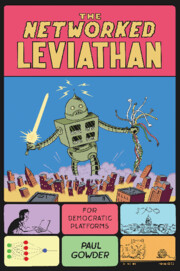
-
- You have access
- Open access
- Cited by 1
-
Cited byCrossref Citations
This Book has been cited by the following publications. This list is generated based on data provided by Crossref.
Anttiroiko, Ari-Veikko 2024. Recent Advances and Prospects in Urban E-Planning. p. 21.
- Publisher:
- Cambridge University Press
- Online publication date:
- July 2023
- Print publication year:
- 2023
- Online ISBN:
- 9781108975438
- Creative Commons:
-
This content is Open Access and distributed under the terms of the Creative Commons Attribution licence CC-BY-NC-ND 4.0 https://creativecommons.org/creativelicenses


